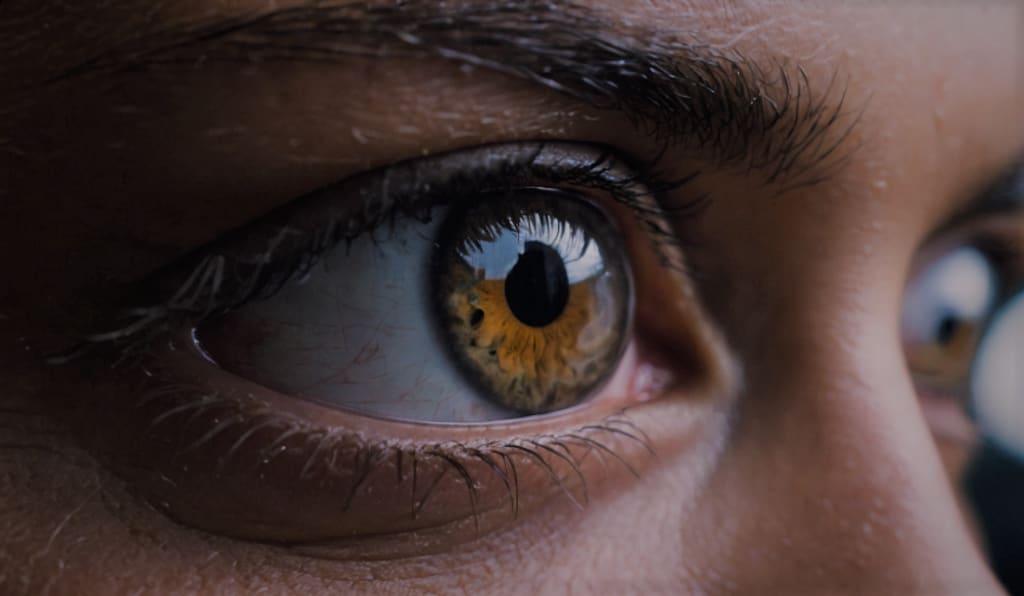Deja Vu and Jamais Vu: Unraveling the Enigma of Familiarity.
A thing that we ignore.

Have you ever experienced a moment where you feel like you've been somewhere before or witnessed something that seems eerily familiar, even though you know you haven't? If so, you've likely encountered the enigmatic phenomenon known as deja vu. Deja vu, a French term meaning "already seen," is a fascinating and often perplexing experience that has intrigued scientists, philosophers, and ordinary individuals alike for centuries.
What is Deja Vu?
Deja vu is commonly described as the sensation of familiarity in a situation that is actually new or unfamiliar. It's as if you're reliving a moment from your past, even though you know it's the first time you're experiencing it. This uncanny feeling can occur suddenly and unexpectedly, leaving individuals questioning their perception of reality.
The Science Behind Deja Vu
Despite its prevalence, the exact cause of deja vu remains shrouded in mystery. However, several theories have been proposed by scientists and researchers in an attempt to unravel its enigma.
One prominent theory suggests that deja vu occurs when there is a mismatch in the brain's memory systems. According to this hypothesis, information from the current experience may inadvertently trigger memories from the past, creating the illusion of familiarity.
Another theory posits that deja vu is a result of the brain's temporal lobe experiencing a brief malfunction, causing a disruption in the normal processing of sensory information. This malfunction may lead to a momentary confusion between the perception of the present moment and stored memories.
Real-Life Encounters with Deja Vu
To delve deeper into the complexities of deja vu, let's explore a real-life story of someone who has grappled with this phenomenon.
Meet Sarah, a 28-year-old graphic designer living in New York City. Sarah has always been fascinated by the mysteries of the mind and often finds herself contemplating the nature of consciousness. One afternoon, while walking through the bustling streets of Manhattan, Sarah suddenly experiences a profound sense of deja vu.
As she passes by a quaint coffee shop tucked away in a corner, Sarah's heart skips a beat as she feels an overwhelming sense of familiarity wash over her. Despite never having visited this particular establishment before, every detail—the aroma of freshly brewed coffee, the cozy interior decor, even the conversations of nearby patrons—seems inexplicably familiar to her.
Confused and intrigued, Sarah pauses in front of the coffee shop, trying to make sense of her inexplicable sensation. She recalls reading about deja vu and wonders if this is what she's experiencing firsthand. Unable to shake off the feeling, Sarah decides to enter the coffee shop, hoping to uncover the source of her deja vu.
As she steps inside, Sarah's eyes scan the room, searching for any clues that might offer an explanation. Suddenly, her gaze falls upon a framed photograph hanging on the wall—a black-and-white image capturing a scene that sends shivers down her spine.
In the photograph, Sarah sees herself sitting at a table in the very same coffee shop, surrounded by familiar faces and engaged in lively conversation. The realization hits her like a bolt of lightning—she has dreamt of this exact moment before.
Overwhelmed by the intensity of her deja vu experience, Sarah's mind races with questions. How is it possible that she dreamt of a place she had never visited until now? Was this mere coincidence, or is there something more profound at play?
The Mystery Deepens: Jamais Vu
While deja vu is a widely recognized phenomenon, its counterpart, known as jamais vu, is equally intriguing. Jamais vu, French for "never seen," is the opposite of deja vu—it involves experiencing something familiar as if it were entirely new and unfamiliar.
Imagine driving down a familiar street in your neighborhood, only to suddenly feel as though you've never seen the houses or landmarks before. Or reading a commonly used word that suddenly looks foreign and unfamiliar. These are examples of jamais vu—a phenomenon that highlights the complex and often paradoxical nature of human perception.
The Mysteries Persist
Sarah's encounter with deja vu serves as a poignant reminder of the enduring mysteries that surround this perplexing phenomenon. Despite advances in neuroscience and psychology, our understanding of deja vu remains incomplete.
As researchers continue to unravel the intricacies of the human brain, perhaps one day we will uncover the true nature of deja vu and gain insight into its profound implications for our understanding of consciousness and memory. Until then, the enigma of deja vu will continue to captivate our imaginations and spark curiosity about the hidden depths of the mind.
In the meantime, the next time you find yourself experiencing deja vu or its lesser-known counterpart, jamais vu, take a moment to pause and reflect on the mysteries of the human experience. Who knows what secrets lie waiting to be discovered in the recesses of our consciousness?
Conclusion
Deja vu remains one of the most intriguing and elusive phenomena of the human mind. Despite centuries of speculation and research, the exact mechanisms underlying this sensation continue to evade our understanding. Whether it's a quirk of memory or a glimpse into the mysteries of consciousness, deja vu reminds us of the profound complexity of the human experience. As we continue to explore the depths of our minds, perhaps one day we will unlock the secrets of deja vu and unravel the mysteries that lie beyond.
About the Creator
Adib Ahmed
Hi, I''m Adib. A content writer from Bangladesh. I like to write articles about science, technology and more. You can stay tuned with me for more updates about science and technology.
Enjoyed the story? Support the Creator.
Subscribe for free to receive all their stories in your feed. You could also pledge your support or give them a one-off tip, letting them know you appreciate their work.





Comments
There are no comments for this story
Be the first to respond and start the conversation.